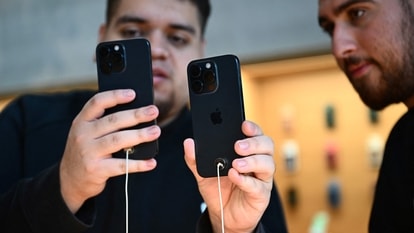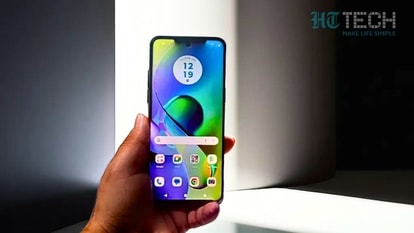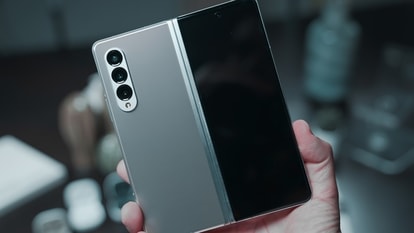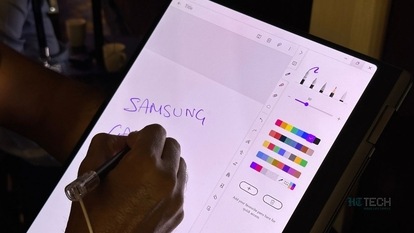AI Voice Generation Company Accused of Stealing Actors’ Voices
Lovo Inc., a synthetic speech startup, was hit with a proposed class action Thursday alleging the company misappropriated voiceover actors’ voices and deceptively promoted its product as legally marketing their use.

Lovo Inc., a synthetic speech startup, was hit with a proposed class action Thursday alleging the company misappropriated voiceover actors' voices and deceptively promoted its product as legally marketing their use.
Voice actors Paul Lehrman and Linnea Sage say Lovo used their voices in its product without fairly compensating them or telling them what the recordings they had made unknowingly for the company through the freelance gig website Fiverr were actually being used for.
They seek to represent a class of everyone whose voice Lovo used without permission or compensation for “the purpose of creating or refining its AI text-to-speech generator” or whose AI-replicated voices were used or sold without proper compensation, their complaint filed in the US District Court for the Southern District of New York says.
Lovo didn't immediately respond to a request to comment.
Lovo advertises more than 500 voices in 100 languages and that users “own all rights to the content created,” including commercial rights, via its services. The company raised $6.5 million in pre-series A funding in 2022 to develop AI-generated voices for Web 3.0 after it launched a collection of 8,888 NFT unique voice tokens.
Both Lehrman and Sage say they made voice recordings after responding to anonymous user inquiries on Fiverr. They were paid $1,200 and $400 respectively and were each told the recordings were for academic purposes or to test radio ads. They say the users who reached out to them were actually Lovo employees.
Years later, Lehrman discovered a YouTube video about Russian military equipment that seemed to be narrated by him, but he'd never recorded the video. Lehrman says he believes the YouTube channel used Lovo to create the narration.
In 2023, Lehrman also heard his own voice on Deadline's Strike Talk podcast, which was “ironically” about “the dangers of AI technologies,” the complaint says.
That year, Sage says she discovered her voice was being used in Lovo's promotional materials, including an investor presentation from 2020.
After researching Lovo, Lehrman says he discovered his voice had been used as the default voice for the software between 2021 and September 2023.
Lehrman and Sage say that they and potential class members have received no revenue from the unauthorized use of their voices.
The complaint says that though Lovo told Lehrman and Sage their voices had been removed from the service in August 2023, they are still available to customers who downloaded the software before their removal requests.
In addition to misappropriating voices, Lovo deceptively advertised its services by representing itself as having the legal right to the voices when it doesn't, Lehrman and Sage say.
“The product that customers purchase from LOVO is stolen property,” the complaint says.
Though Lovo tells customers they have full commercial rights to the content they generate, the company doesn't own the rights it claims to give its customers, “rights which remain with the actors whose voices have been illegally cloned or otherwise misappropriated,” the complaint says.
Lehrman and Sage bring claims for violations of New York's Civil Rights Law, General Business Law, Deceptive Practices Act, and False Advertising Act. They also bring claims for false affiliation and advertising under the federal Lanham Act, as well as for unjust enrichment, tortious interference, and fraud. They are asking the court for damages.
The voiceover actors' suit follows similar suits against generative AI companies from authors, media outlets, and artists.
Lehrman and Sage are represented by Pollock Cohen LLP.
The case is Lehrman v. Lovo Inc., S.D.N.Y., No. 1:24-cv-03770, complaint filed 5/16/24.
To contact the reporter on this story: Shweta Watwe in Washington at swatwe@bloombergindustry.com
To contact the editors responsible for this story: Kiera Geraghty at kgeraghty@bloombergindustry.com; Nicholas Datlowe at ndatlowe@bloombergindustry.com
This article was generated from an automated news agency feed without modifications to text.
Catch all the Latest Tech News, Mobile News, Laptop News, Gaming news, Wearables News , How To News, also keep up with us on Whatsapp channel,Twitter, Facebook, Google News, and Instagram. For our latest videos, subscribe to our YouTube channel.








































